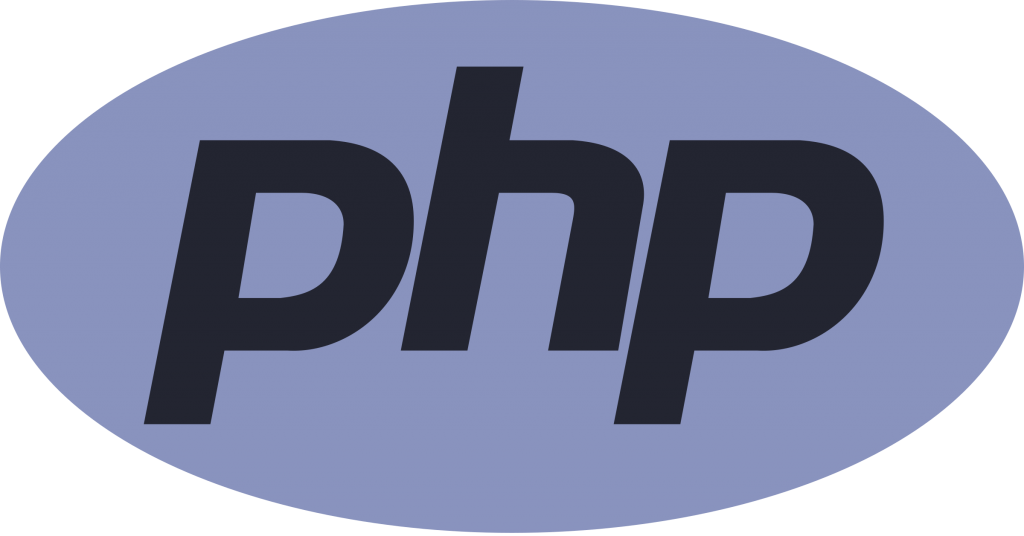Reading time: 9 minutes.

Importance of Web Development Certifications
Advancing Your Career in Web Development
Acquiring web development certifications can significantly enhance your career trajectory. With the constantly evolving landscape of web technologies, staying updated through certification programs is essential. These programs validate your knowledge and skills, demonstrating to potential employers that you are proficient in the latest web development trends and practices.
Certified web developers often see a positive impact on their job prospects and salary. According to market data, certified developers can earn significantly more than their non-certified counterparts.
| Certification Status | Average Salary |
|---|---|
| Certified | $85,000 – $115,000 |
| Non-Certified | $55,000 – $75,000 |
For more details on salary expectations, refer to our article on web development salary.
Demonstrating Expertise and Skills
Web development certifications are a reliable way to showcase your expertise. They serve as a benchmark for your skills, letting employers know that you have received formal training and possess a comprehensive understanding of various web development concepts.
Certifications not only aid in job acquisition but also in career advancement. They can set you apart in a highly competitive field and could be the deciding factor in landing lucrative projects or promotions. Recognized certifications in areas such as front end web development or full stack web development can emphasize your skills in these specializations.
| Certification Type | Skills Validated |
|---|---|
| HTML5 and CSS3 | Markup languages, web styling |
| JavaScript | Scripting, web functionality |
| PHP | Server-side scripting |
| Node.js | Backend development, server configuration |
Certifications play a crucial role in building credibility and trust with clients, especially if you offer freelance web development services or work in a web development agency. They provide verifiable proof that you are equipped with the necessary skills to meet their web development needs.
By pushing the boundaries of your education and obtaining web development certifications, you establish yourself as a dedicated and knowledgeable professional, ready to tackle the demands of this dynamic industry.
Front-End Development Certifications
Front-end development certifications are critical for anyone looking to specialize in the user interface and experience aspects of web development. These certifications validate your skills and knowledge in key technologies such as HTML5, CSS3, and JavaScript.
HTML5 and CSS3 Certifications
HTML5 and CSS3 are foundational technologies for web development. HTML5 is responsible for structuring the content on a web page, while CSS3 is used for styling and layout. Certification in these technologies shows that you possess the skills necessary to create well-structured and visually appealing websites.
| Certification Program | Average Study Time (Hours) | Exam Cost ($) |
|---|---|---|
| HTML5 & CSS3 Fundamentals | 30 | 150 |
| Advanced HTML5 & CSS3 | 50 | 200 |
An HTML5 and CSS3 certification typically covers:
- Semantic HTML
- Responsive design principles
- Advanced CSS techniques
- Flexbox and Grid layouts
For more detailed information on designing responsive websites, visit our article on responsive web development.
JavaScript Certification
JavaScript is a scripting language that enables interactive elements on web pages. It is essential for any front-end developer. A JavaScript certification demonstrates that you have proficiency in JavaScript, including its core concepts, syntax, and libraries.
| Certification Program | Average Study Time (Hours) | Exam Cost ($) |
|---|---|---|
| JavaScript Essentials | 40 | 100 |
| Advanced JavaScript | 60 | 250 |
Topics covered in JavaScript certification programs include:
- Basic to advanced JavaScript syntax
- DOM manipulation
- Event handling
- ES6+ features
- Libraries like jQuery
Becoming certified in JavaScript opens up opportunities for roles that require interactive and dynamic web content. For those interested in combining front-end skills with back-end expertise, explore our article on full stack web development.
Pursuing these certifications can significantly boost your career. For insights into potential earnings, read our article on web development salary.
Back-End Development Certifications
Acquiring back-end development certifications can significantly enhance your expertise and open a world of career opportunities. Here are two key certifications to consider: PHP Certification and Node.js Certification.
PHP Certification
PHP is a widely used server-side scripting language that has been around for decades. Earning a PHP certification can validate your ability to build dynamic web applications and manage back-end development.
| Certification | Topics Covered | Estimated Study Time | Exam Duration |
|---|---|---|---|
| Basic PHP Certification | Syntax, Variables, Data Types, Operators | 40 hours | 1 hour |
| Advanced PHP Certification | OOP, Database Interaction, Security Features | 60 hours | 1.5 hours |
A PHP certification not only demonstrates your expertise in the language but also shows your commitment to keeping up with industry standards. For those considering a transition into back-end roles, this certification is invaluable. Learn more about back-end roles in our article on web development services.
Node.js Certification
Node.js is a powerful JavaScript runtime that allows developers to build scalable network applications. A certification in Node.js can showcase your skill in managing server-side development with JavaScript.
| Certification | Topics Covered | Estimated Study Time | Exam Duration |
|---|---|---|---|
| Basic Node.js Certification | Core Modules, Event Handling, File System | 50 hours | 1 hour |
| Advanced Node.js Certification | Asynchronous Programming, Web Servers, APIs | 80 hours | 2 hours |
Node.js has gained immense popularity among developers for its efficiency and scalability. Earning a certification in Node.js can provide you with recognition in the realm of modern web development. Explore more about back-end frameworks in our article on web development frameworks.
Considering these certifications can help you gain a competitive edge in the web development landscape. Whether you are looking to enhance your skillset or transition into a new role, back-end development certifications like PHP and Node.js are excellent steps to consider. For those interested in additional development paths, check out our resources on full stack web development and other web development tools.
Full-Stack Development Certifications
Full-Stack Web Development Certification Programs
Full-stack web development certifications offer a comprehensive approach to mastering both front-end and back-end technologies. These certification programs cover various elements starting from the basics of HTML, CSS, and JavaScript, to more complex backend technologies such as Node.js and databases. Here’s a look at some common components included in these certifications:
| Component | Description |
|---|---|
| HTML5 & CSS3 | Foundation elements for web design and structure |
| JavaScript | Essential scripting language for interactive web elements |
| Node.js | Server-side JavaScript platform |
| Databases | Introduction to SQL and NoSQL databases |
| APIs | Working with REST and GraphQL |
These programs often balance theoretical knowledge with practical applications, providing developers with a well-rounded skill set. For more details on front-end technologies, refer to our article on front end web development.
Benefits of Full-Stack Development Certifications
Obtaining a full-stack web development certification has several benefits that can greatly impact your career:
- Versatility: Being proficient in both front-end and back-end development makes you a versatile developer. You can handle projects from start to finish without needing constant input from specialists in different areas.
- Better Job Prospects: Employers highly value certified full-stack developers due to their wide range of skills. This can lead to better job opportunities and higher salaries, as discussed in our article on web development salary.
- Broad Knowledge Base: Full-stack certifications provide a deep understanding of multiple technologies and frameworks. This knowledge allows you to build more efficient and effective applications. Check out more on different web development frameworks for advanced study.
By combining the theoretical understanding with hands-on experience, full-stack development certifications empower you to tackle complex projects and adapt to various roles within a development team. This makes you a valuable asset for any web development agency. If you’re looking to dive deeper, explore our extensive guide on full stack web development.
Investing in full-stack web development certifications can provide a significant boost to your career, offering new avenues for specialization and increased professional opportunities.
Specialized Web Development Certifications
For web developers aiming to sharpen their skills and stand out in the industry, specialized web development certifications are a valuable investment. These certifications focus on niche areas of web development that are highly relevant and in-demand.
Responsive Web Design Certification
Responsive web design is crucial for creating websites that look and perform well on a variety of devices, from desktops to smartphones. A certification in responsive web development demonstrates an understanding of how to create fluid and adaptive layouts, ensuring a seamless user experience across all devices.
Key components of a Responsive Web Design Certification include:
- Mastery of media queries
- Understanding flexible grid layouts
- Proficiency in viewport settings
- Skills in fluid images and responsive typography
| Component | Focus Area |
|---|---|
| Media Queries | Define styles for different devices |
| Flexible Grid Layouts | Create layouts that adapt to various screen sizes |
| Viewport Settings | Configure the viewport for responsive design |
| Fluid Images | Ensure images scale within their containing element |
| Responsive Typography | Adjust font sizes for readability on all devices |
Web Security Certification
Web security is a top priority for developers to protect websites from potential threats and vulnerabilities. A certification in web security equips developers with the knowledge to implement robust security measures in their web projects.
Key areas covered in a Web Security Certification include:
- Understanding common web vulnerabilities
- Implementing HTTPS and SSL/TLS
- Securing web applications with proper authentication and authorization
- Using secure coding practices
- Staying updated on the latest security threats
| Security Aspect | Focus Area |
|---|---|
| Common Vulnerabilities | XSS, SQL Injection, CSRF |
| HTTPS and SSL/TLS | Secure data transmission |
| Authentication and Authorization | Implement secure login mechanisms |
| Secure Coding Practices | Follow best practices to prevent vulnerabilities |
| Staying Updated | Keep track of emerging security threats |
By pursuing specialized web development certifications, you not only enhance your skills but also demonstrate a commitment to staying current with the latest industry standards. Whether focusing on responsive web design or web security, such certifications are a testament to your proficiency and dedication to excellence in web development. Explore other related certifications in full stack web development or delve into web development bootcamp programs to broaden your expertise even further.
Choosing the Right Certification Program
Selecting the appropriate certification program can significantly impact your career in web development. Here, you’ll find insights into researching certification options and factors to consider before embarking on this educational journey.
Researching Certification Options
To find the best web development certifications, thorough research is essential. Here are some steps to guide your process:
- Identify Your Focus Area:
- Determine whether you want to specialize in front-end web development, back-end development, or become a full-stack developer.
- Explore Credible Institutions:
- Look for well-recognized institutions that offer certifications in your chosen field. Ensure they have a good reputation and industry recognition.
- Compare Syllabus and Structure:
- Compare the course content for different programs to ensure they cover the latest technologies and best practices.
- Read Reviews and Testimonials:
- Check reviews and testimonials from past participants to gauge the effectiveness and value of the certification program.
- Check Prerequisites and Requirements:
- Ensure you meet the prerequisites for the course, such as prior experience or foundational knowledge in web development.
Factors to Consider Before Pursuing a Certification
Before committing to a certification program, consider the following aspects to make an informed decision:
| Factor | Description |
|---|---|
| Cost | Compare the costs of different certification programs and weigh them against the potential return on investment. |
| Time Commitment | Assess how much time you can dedicate to studying and whether the program fits into your schedule. |
| Course Format | Decide if you prefer online, in-person, or hybrid learning formats based on your learning style. |
| Accreditation | Ensure the program is accredited by industry-recognized bodies, which adds value to your certification. |
| Career Goals | Align the certification with your long-term career goals and desired job roles. |
| Support and Resources | Check if the program offers additional resources such as mentorship, forums, or career support. |
Choosing the right certification is a pivotal step in advancing your web development career. Prioritize programs that enhance your skills and knowledge while fitting into your personal and professional goals. For more insights on shifting your career with certifications, you can explore our articles on web development bootcamp and full stack web development.





